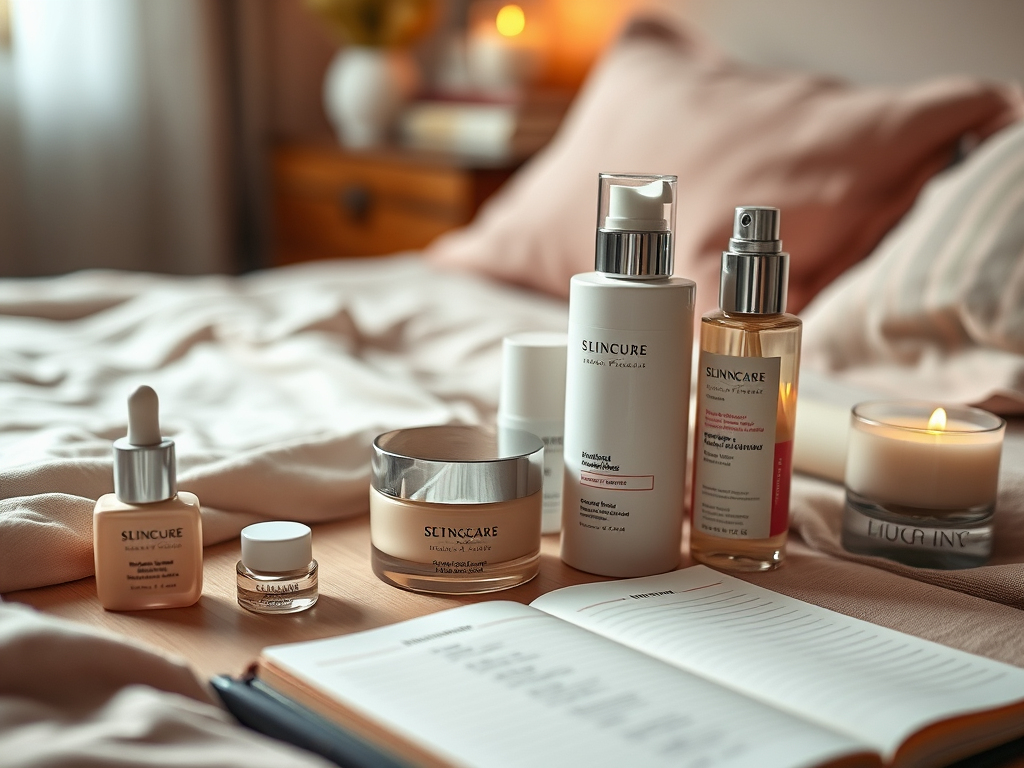
The Role of Stress in Causing Facial Blemishes
When we think about stress, our minds often go to its emotional and mental repercussions. Yet, an equally important aspect resides in how stress manifests physically—in our skin. As life continuously throws challenges our way, many individuals experience the adverse effects of stress, particularly in forms that can be seen on the face. Facial blemishes, including acne, pimples, and other skin imperfections, might appear to have external causes, but a significant contributing factor is often lurking within: stress. Understanding the intricate relationship between stress and skin health can empower individuals to take proactive steps toward healthier skin and a clearer complexion.
Blemishes can be distressing, and they often carry a weight of embarrassment and self-consciousness. Therefore, the urge to target the symptoms through skincare products may overshadow the importance of addressing root causes, such as stress. This article delves into how stress influences our skin, the role of hormones and inflammation, and practical advice on both prevention and treatment. Armed with this knowledge, you can better manage stress while also caring for your skin effectively.
Understanding Blemishes: Types and Causes

Facial blemishes can take many forms that vary in appearance, impact, and underlying causes. The most common types include acne, which comes in various grades of severity, as well as whiteheads, blackheads, and even dark spots from sun exposure. Furthermore, conditions like rosacea can emerge primarily due to stress. Understanding these variations within blemishes is key to recognizing the full impact of stress on the skin’s health.
- Acne – Often the result of clogged pores and hormonal swings.
- Whiteheads and Blackheads – Types of acne that reside near the surface of the skin.
- Pimples – Inflamed lesions that can occur from various triggers, including stress.
- Dark Spots – Hyperpigmentation that can develop from stress and skin irritation.
- Rosacea – A chronic condition that can be aggravated by stress factors.
The Connection Between Stress and Skin Health

Understanding the connection between stress and skin health reveals a complex interplay of biological and psychological factors. Stress influences our body in numerous ways, often triggering the release of hormones that can lead to increased oil production in the skin. This excessive oil can contribute to blocked pores, resulting in blemishes that can leave lasting marks on both the skin and one’s self-esteem. The intricate relationship between stress and these physical manifestations is often overlooked, yet it is critical for effective management.
How Stress Affects Hormones
When faced with stress, our bodies perceive it as a threat, leading to the release of cortisol and adrenaline. These hormones, while crucial for survival, can disrupt the body’s natural balance, particularly concerning skin health. Elevated cortisol causes the skin’s oil glands to produce more sebum, creating the perfect environment for acne-causing bacteria to thrive. As a result, a simple stressful day can leave a person vulnerable to breakouts long after the stressor has passed.
Inflammation and the Skin
Moreover, stress is not only about hormonal fluctuations; it also triggers inflammation throughout the body. Chronic inflammation can lead to various skin issues, such as acne and rosacea flare-ups. When the body is in a constant state of stress, inflammatory markers can rise, leading to skin that appears red, irritated, and blemished. Recognizing this inherent link between stress and inflammation provides a more comprehensive understanding of skin health, allowing individuals to tackle both stress and its visible effects.
Preventing and Treating Stress-Induced Blemishes
Managing stress effectively can play a crucial role in improving skin health. Adopting a proactive approach that encompasses both skincare and stress management can yield significant benefits for your complexion. By integrating healthful habits and treatments, individuals can create an environment where their skin can thrive, free from the interruptions caused by stress-induced blemishes.
Skincare Recommendations
- Gentle cleansing twice a day to remove impurities without stripping the skin.
- Using non-comedogenic products ensures pores remain unclogged.
- Regular exfoliation helps to slough away dead skin cells and prevent buildup.
Additionally, incorporating certain lifestyle changes can bolster overall skin health. Below is a helpful table showcasing effective stress management techniques alongside their potential benefits for the skin:
| Stress Management Technique | Benefits for Skin |
|---|---|
| Exercise | Improves blood circulation and reduces stress hormones. |
| Meditation and Deep Breathing | Calms the mind, lowering cortisol levels. |
| Seeking Professional Help | Provides support and strategies for stress management. |
Stress Management Techniques
- Start an exercise routine that includes activities you enjoy.
- Practice meditation while focusing on your breath for a few minutes a day.
- Consider speaking with a therapist to address underlying stressors.
Conclusion
In conclusion, stress plays a significant and often underestimated role in the development of facial blemishes. By recognizing the intricate relationship between our emotional state and skin health, individuals can adopt strategies to address both issues holistically. This understanding not only empowers people to mitigate the immediate effects of stress on their skin but also fosters a long-term commitment to overall well-being. Through an integrated approach that blends effective skincare routines and effective stress management practices, achieving healthier skin is entirely within reach.
Frequently Asked Questions
- Can stress directly cause acne? Yes, stress can increase cortisol levels, which may lead to acne breakouts.
- What are effective stress management techniques for better skin? Techniques include exercise, meditation, mindfulness, and a regular skincare routine.
- How long does it take for stress-induced blemishes to clear up? The duration can vary depending on individual factors, but proper skin care and stress management can help speed up recovery.
- Should I change my skincare routine when I’m stressed? It’s advisable to maintain a consistent skincare routine, but you may want to opt for gentler products during stressful periods.
- Can diet influence stress and skin health? Yes, a balanced diet can improve overall well-being and contribute to healthier skin.

